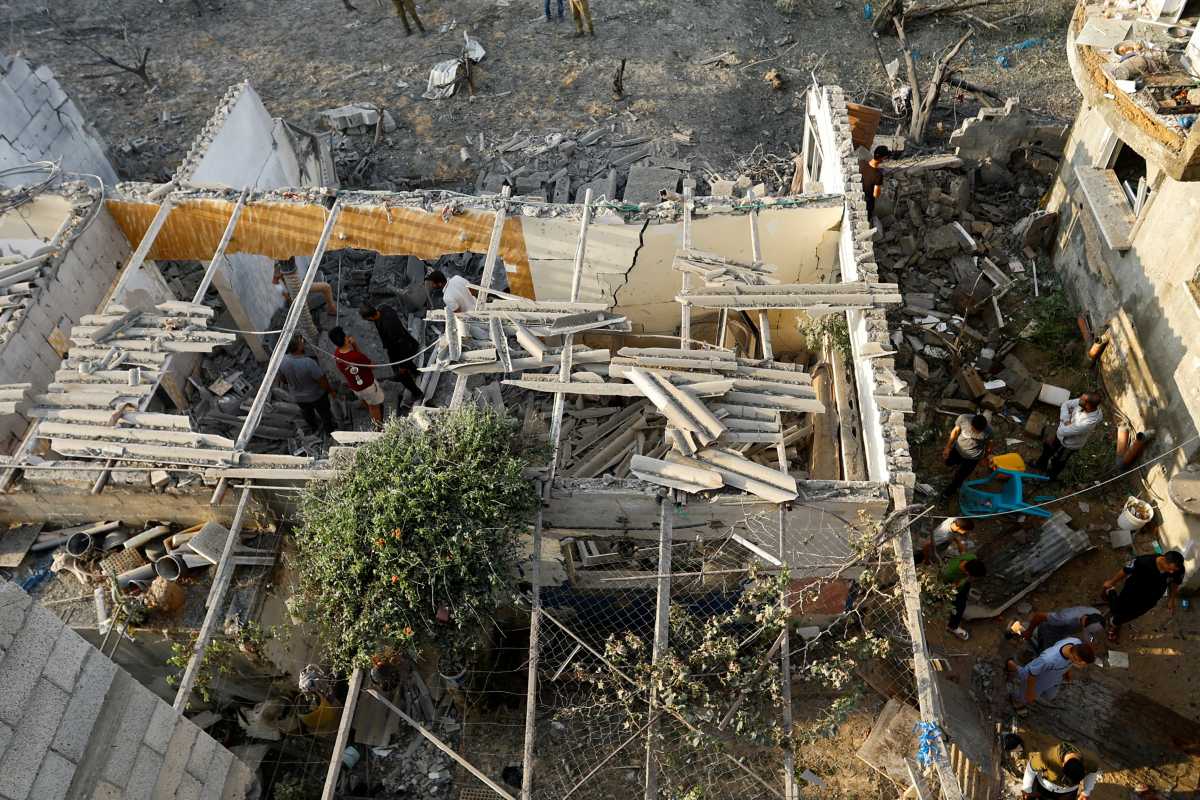World
Egypt Rejects Safe Corridors but Discusses Humanitarian Aid for Gaza

Egypt has held discussions with the United States and other countries regarding the provision of humanitarian aid through its border with the Gaza Strip. However, Egyptian security sources have stated that they reject the establishment of safe corridors for refugees seeking to flee the enclave. The Gaza Strip is a coastal strip of land located between Israel and Egypt, home to approximately 2.3 million people who have endured a blockade since Hamas took control in 2007.
Cairo has long limited the flow of Gaza Palestinians into its territory, even during the most intense conflicts. As a frequent mediator between Israel and the Palestinians, Egypt consistently insists that conflicts be resolved within their respective borders, asserting that this is the only way for Palestinians to secure their right to statehood.
The United States has been engaging in consultations with Israel and Egypt regarding the concept of safe passage for civilians from Gaza. This idea arose following a massive Israeli assault in response to a deadly incursion by Hamas fighters into Israel. Discussions on this topic are ongoing, according to US Secretary of State Antony Blinken. However, Egypt firmly rejects the notion of safe corridors, as they believe this obstructs the Palestinians’ right to maintain their cause and their land.
Several Arab states still maintain refugee camps for Palestinians who are descendants of those displaced during the war surrounding Israel’s founding in 1948. The Palestinians and other Arab states insist that a final peace agreement must guarantee the right of these refugees to return, a proposition that Israel has consistently opposed.
UN Secretary-General Antonio Guterres emphasized the urgent need for life-saving supplies, including fuel, food, and water, to be allowed into Gaza. Acknowledging Egypt’s constructive involvement in facilitating humanitarian access through the Rafah crossing and making the El Arish airport available for critical assistance, Guterres appealed for rapid and unimpeded access. He cautioned against a mass exodus of Gazans and advocated for their protection.
Egyptian President Abdel Fattah el-Sisi conveyed to Italian Foreign Minister Antonio Tajani during a meeting in Cairo that Egypt is intensifying its efforts to manage the situation in Gaza, as stated in a press release from el-Sisi’s office. Sources from the Egyptian security apparatus disclose ongoing discussions with the United States, Qatar, and Turkey regarding the delivery of humanitarian aid through the Rafah crossing, limited to a specific geographical ceasefire area.
Turkish President Recep Tayyip Erdogan mentioned that efforts have commenced to deliver aid, although he provided no further details. The Rafah crossing, the primary exit point from Gaza not controlled by Israel, has been closed since Tuesday due to Israeli bombardments on the Palestinian side, according to officials in Gaza and Egyptian sources.
Throughout this week, Egypt has repeatedly issued statements cautioning against the possibility of Israel’s assault on Gaza resulting in the displacement of residents into Egyptian territory. Israel’s ambassador to Egypt, Amira Oron, affirmed on social media that Israel has no intentions concerning Sinai and has not requested Palestinians to relocate there, as Sinai is Egyptian territory.
When asked about the potential for displacement following a meeting with Tajani, Egyptian Foreign Minister Sameh Shoukry stated that Egypt is eager to open the Rafah crossing to provide humanitarian aid, food, and medicine. Nevertheless, he stressed that instability and the escalation of conflict will only lead to increased hardship and more refugees seeking safety in areas such as Europe.












